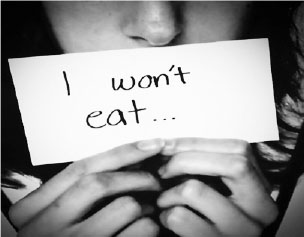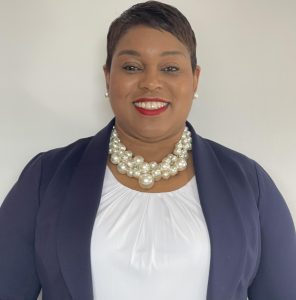Anorexia Nervosa: A Deadly Battle Against Your Insecurities

December 19, 2016
“I already ate today.” “I’m not hungry.” “I’m really full.” “I need to lose weight.” These are the lies that people suffering from anorexia nervosa will tell you; these are the lies that I used to tell.
No one chooses to be anorexic. I mean to an extent they do, but it’s a mental disease that attacks the host, latching onto them like a deadly parasite; creeping into their minds and having them believe that they are worthless, fat, and ugly.
According to the National Association of Anorexia Nervosa and Associated Disorders (ANAD), “Anorexia Nervosa has the highest death rate of any psychiatric disorder.” A victim of this deadly disorder may survive weeks, maybe even years, but without treatment they will eventually die.
Anorexia Nervosa, according to The National Eating Disorders Association (NEDA), “ is a serious, potentially life-threatening eating disorder characterized by self-starvation and excessive weight loss.”
The University of Rochester Medical Center (URMC) informs us that “90 percent of women between 12 and 25 years of age” will develop anorexia nervosa, an eating disorder, that’s “initially found mostly in upper- and middle-class families.” URMC also states that “anorexia nervosa is now known to affect both sexes and span all ages, socioeconomic, ethnic, and racial groups.”
Gina Shaw, a medical and healthcare journalist from WebMd, reports on the serious health effects that come with the disease. She notes, “The first victim of anorexia is often the bones…and is one of the most irreversible complications of the disease.” However, “the most life-threatening damage is usually the havoc wreaked on the heart.” Shaw is expressing that the heart will decrease in size and weaken as the muscle mass increases, causing major heart problems in the near future.
Eating Disorder Hope claims that “multiple factors, both biological and environmental,” are thought to be causes of why someone may develop anorexia. Environmental factors include, but are not limited to, “the thinness culture in media, that constantly reinforces thin people as ideal stereotypes;” “professions and careers that promote being thin and weight loss, such as ballet and modeling;” “family and childhood traumas such as sexual abuse;” or “peer pressure among friends and co-workers to be thin or sexy.” The biological factors that may occur are “irregular hormone functions,” “genetics,” or “nutritional deficiencies.”
Even with all these beliefs about the potential causes of anorexia nervosa, there is no “real” start or identifiable cause for how someone develops anorexia because it can literally happen to anyone in a variety of ways. It can even happen to those of us who never expected to struggle with it. I never expected to struggle with it.
When you have thoughts of “do they like me?” “Am I worth it?” “Am I pretty?” You can want to change your ways – to start eating right again – but you’re like a baby; you have to be force-fed, and sometimes you will end up rejecting your food.
However, getting help won’t be as easy as telling your best friend that you have an eating disorder. In order to get help, you must first admit to yourself that you have a problem, and you never want to admit that you have a problem.
Admitting that you have a problem means admitting that you aren’t normal or that there’s something wrong with you. However, even if you do get help, your insecurities and lack of body confidence still remain.
During my battle against anorexia, I felt depressed about my lifestyle. I didn’t feel good when I didn’t eat because I knew I was letting my friends down. I didn’t feel good when I did eat because I felt as though I was letting my body down. The truth is, I was causing myself harm, and I didn’t even realize it.
My bones were deteriorating, and my heart was weakening; I had become anemic.
Just two years ago, I read Letting Ana Go – a book about a girl who struggles with anorexia nervosa – and I told myself that I’d never be like Ana. I think, if I were to reread that book today, I’d say that’s exactly who I had become.
After several days of starvation, I no longer felt its burden. I rapidly changed into Pearl from Steven Universe in the sense that all food eventually became disgusting, even the food that I used to love so much.
The scale was a number game that I’d constantly try to score lower on. The scale may have read underweight, but my mind read fat–not skinny enough.
Anorexia nervosa was no longer something I identified as a disorder because my “disorder” was so much more than “a state of confusion.” It was now a part of me, taking over every thought process and infesting me with overwhelming fears and anxiety.
If you know someone who has an eating disorder, please get them help. Don’t wait for them to ask for help because they probably won’t ask. I certainly didn’t ask. In fact, I cried almost every time someone mentioned that they were going to tell a teacher on me. Honestly, I wish someone would have gotten me the help I so desperately needed before I had fallen, weightless, into its clutches.












































